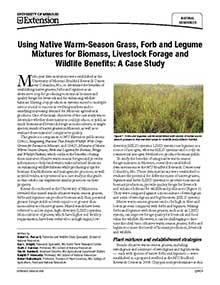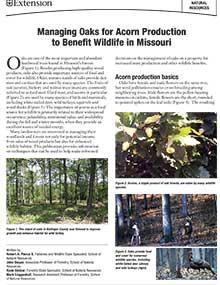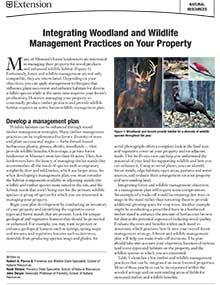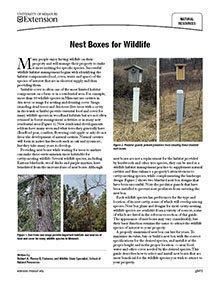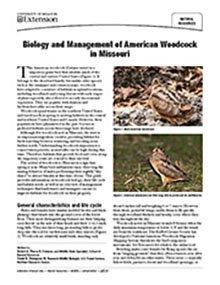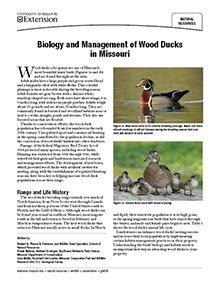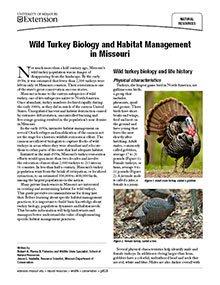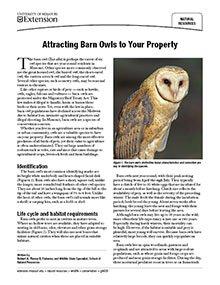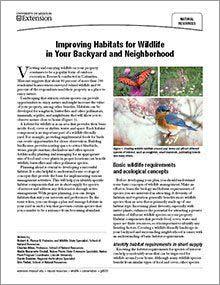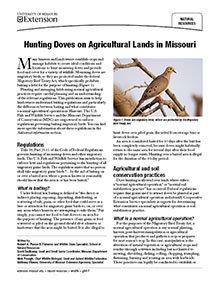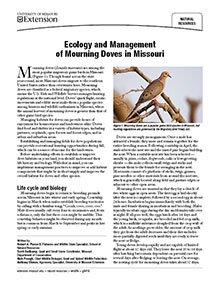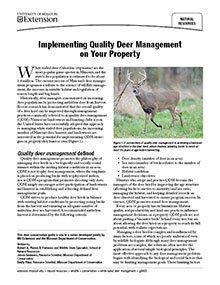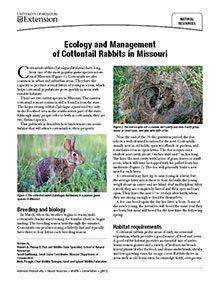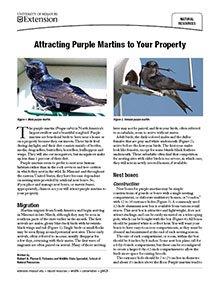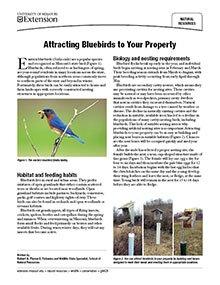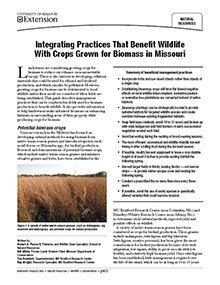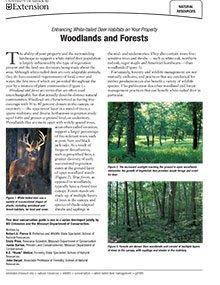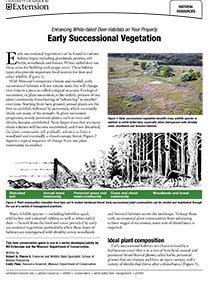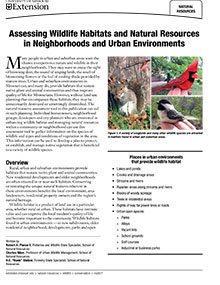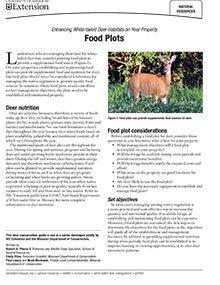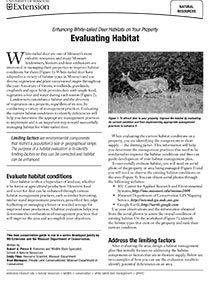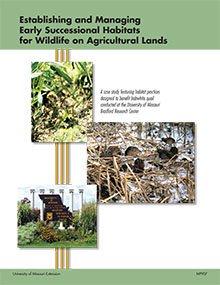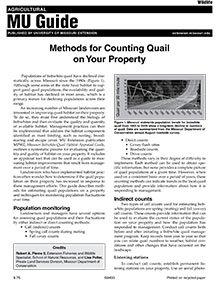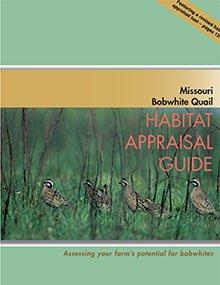The following publications cover topics related to Wildlife Ecology and Management. For a complete list of MU Extension publications, visit the main Publications page.
Managing Oaks for Acorn Production to Benefit Wildlife in Missouri
Reviewed
Learn techniques to manage oak woodlands for increased acorn production, enhancing food sources and habitats for Missouri wildlife such as deer and turkeys.
Nest Boxes for Wildlife
Reviewed
Editor's note
The References section was updated in June 2017.
Biology and Management of the American Woodcock in Missouri
New
This guide provides information on woodcock biology, their life cycle and habitat needs, as well as an overview of management techniques that landowners and managers can use to improve habitats for woodcock on their property.
Wild Turkey Biology and Habitat Management in Missouri
New
Missouri's wild turkey population was in danger of disappearing. Visit our site to learn about Wild Turkey Biology and Habitat Management in Missouri.
Attracting Barn Owls to Your Property
New
Barn owls are desirable predators that play an important role in controlling nuisance rodent populations in farmsteads, agricultural ecosystems and urban environments alike. Learn how to create, place and maintain nesting boxes to attract barn owls to your property.
Improving Habitats for Wildlife in Your Backyard and Neighborhood
New
Increasing plant diversity, especially with native plants, enhances the potential for attracting more wildlife species to your property. Create habitat that provides their basic needs: food, cover, water and space. Learn how in this MU Extension guide.
Hunting Doves on Agricultural Lands in Missouri
New
Mourning doves are protected: It is illegal to bait a field for the purpose of hunting them. Learn about baiting regulations and the differences between baiting and what constitutes a normal agricultural operation in Missouri in this MU Extension guide.
Ecology and Management of Mourning Doves in Missouri
New
Mourning doves are among the most popular migratory game birds in Missouri. Doves’ quick flight, erratic movements and edible meat make them a popular species among hunters and wildlife enthusiasts in Missouri, where the annual harvest of mourning doves is greater than that of other game bird species.
Implementing Quality Deer Management on Your Property
Reviewed
Improve the overall quality of a deer herd — and the deer hunting experience — on your land using quality deer management (QDM) practices. QDM works even on small acreages. Learn how to implement QDM in this University of Missouri Extension guide.
Ecology and Management of Cottontail Rabbits in Missouri
New
#maincontent .customcol { float: left; width: 33%;}#maincontent .customcol2 { float: right; width: 33%;}#maincontent .customcol3 { float: right; width: 34%;}@media only screen and (max-width:873px) {#maincontent .customcol { width:100%; margin-bottom: 10px; }#maincontent .customcol2 { width:100%; margin-bottom: 10px; }#maincontent .customcol3
Integrating Practices That Benefit Wildlife With Crops Grown for Biomass in Missouri
New
Learn how to integrate wildlife-friendly practices into biomass crop production in Missouri, including using mixed stands and strategic field layouts.
Enhancing White-Tailed Deer Habitats on Your Property: Woodlands and Forests
New
White-tailed deer management
This deer conservation guide is one in a series developed jointly by MU Extension and the Missouri Department of Conservation.
Enhancing White-Tailed Deer Habitats on Your Property: Early Successional Vegetation
New
White-tailed deer management
This deer conservation guide is one in a series developed jointly by MU Extension and the Missouri Department of Conservation.
Assessing Wildlife Habitats and Natural Resources in Neighborhoods and Urban Environments: A Planning Guide for Wildlife Habitats in Urban Areas
New
Individual homeowners, neighborhood groups, developers and city planners who are interested in enhancing wildlife habitat and managing natural resources within a community or neighborhood can use this assessment tool to gather information on the species of wildlife and types and conditions of vegetation in the area. This information can be used to develop a plan to protect, or establish, and manage native vegetation that is beneficial to a variety of wildlife species.
Enhancing White-Tailed Deer Habitats on Your Property: Food Plots
New
Landowners who are managing their land for white-tailed deer may consider planting food plots to provide a supplemental food source. Food plots should never be considered a substitute for managing the native vegetation to provide quality food sources. In situations where food plots would contribute to deer management objectives, the plots need to be established and maintained properly.
Enhancing White-Tailed Deer Habitats on Your Property: Evaluating Habitat
New
White-tailed deer management
This deer conservation guide is one in a series developed jointly by MU Extension and the Missouri Department of Conservation.
Establishing and Managing Early Successional Habitats for Wildlife on Agricultural Lands
New
A case study featuring habitat practices designed to benefit bobwhite quail conducted at the University of Missouri Bradford Res
Missouri Bobwhite Quail Habitat Appraisal Guide
Revised
The Missouri Bobwhite Quail Habitat Appraisal Guide helps landowners assess and improve their property's potential to support bobwhite quail populations.
